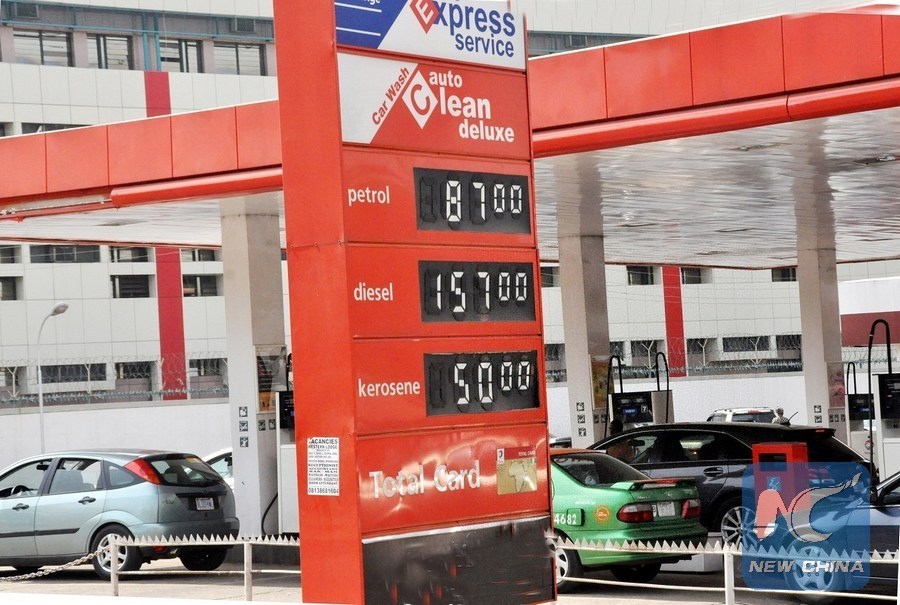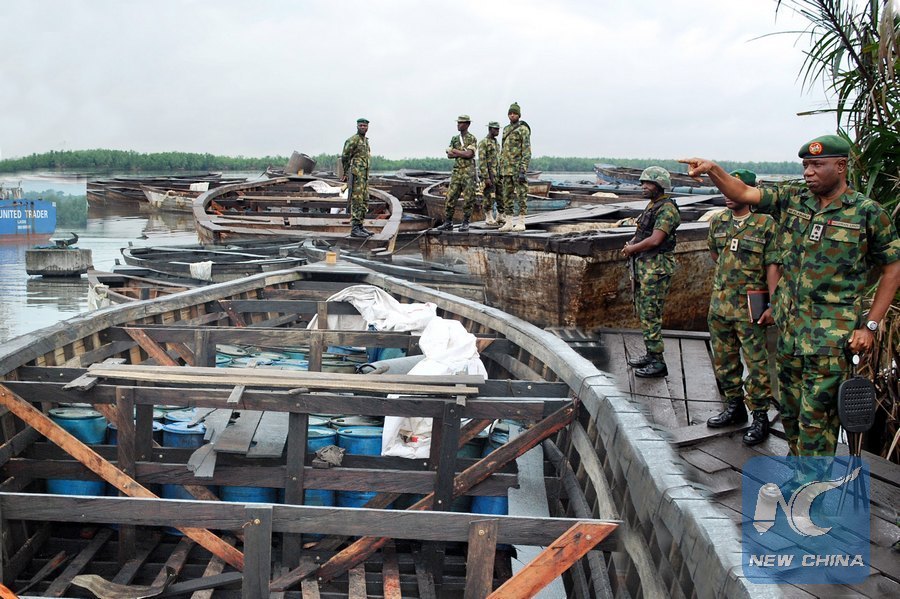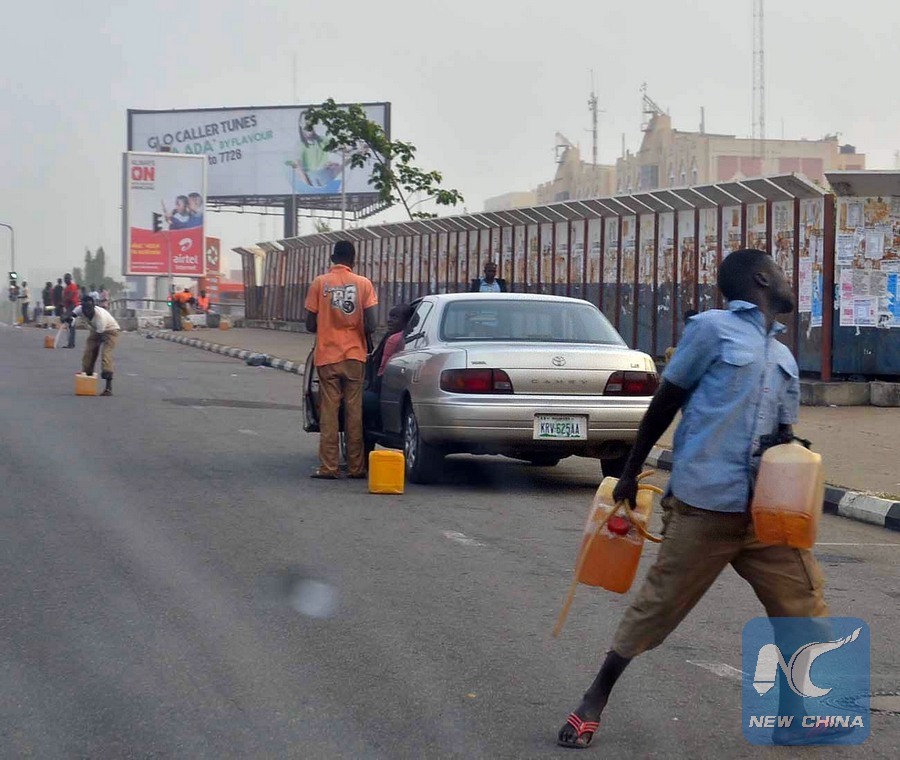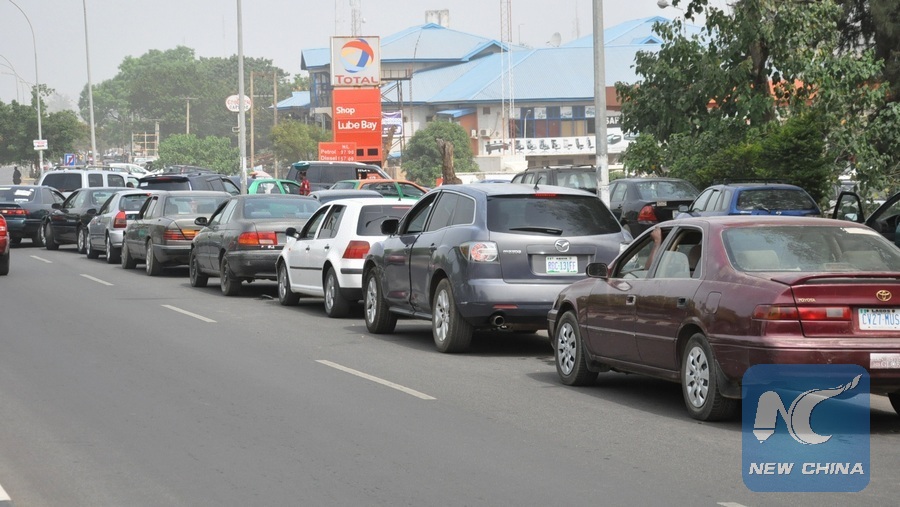
Photo taken on Jan. 19, 2015 shows the prices of fuel at a fuel station in Abuja, capital of Nigeria. Nigeria's Minister of Petroleum Diezani Allison-Madueke on Sunday announced the drop in premium motor spirit, popularly known as petrol from 97 Nigerian Naira to 87 Nigerian Naira due to the drop in oil prices globally. (Xinhua/Dare Sholarin)
LAGOS, Aug. 27 (Xinhua) -- Nigeria cannot have competitive economy when there are political and security challenges, a former apex bank chief said Friday.
Speaking at a forum in the oil rich southern city of Delta, Charles Soludo, a former Governor of the Central Bank of Nigeria (CBN) said the current slide in oil price was an opportunity for Nigeria to explore other vital sectors of the economy.
Though Nigeria was under excruciating pains, there was hope for the citizenry, the professor of economics said.

Nigerian Armed officers are seen at the Makoba Beach in Port Harcourt, Rivers State, Nigeria, Sept. 1, 2015. The Nigerian Army on Tuesday said it had uncovered a massive illegal oil bunkering site at the Makoba Beach in Port Harcourt. Over 5000 drums were discovered containing illegal refined diesel. (Xinhua/Dare Sholarin)
According to him, the rate of poverty is high, militancy and kidnapping is on the increase while the current recession faced by the country is self-inflicting.
He advised the government to fight insurgency completely and maintain peace, saying that this would go a long way in reviving the economy of the nation.
He added that the government should allow states to have control of their resources and pay some percentage to it.
According to him, this will also help to stabilize the economy of the nation as well as reduce the challenges of insurgency in the country.

Traders carry fuel for sale by the road side in Abuja, capital of Nigeria, Dec. 16, 2014.(Xinhua/Olatunji Obasa)
Earlier on Thursday at a lecture of the Progressive Governors Forum in northern Kaduna, the economist said there should be a coalition of economic policies that can deal with desperate socio-economic issues in a sustainable manner for Nigeria to come out of its challenge.
According to him, no state can develop sustainably if the overall governance and economy are in crisis.
"Nigeria is facing unprecedented and tremendous political and economical challenges with global and local dynamics. Regardless of these challenges, opportunities and possibilities abound if we address some fundamental issues. The key to achieving this is to have a development plan that is anchored on realizing inclusive and sustainable growth," he added.

Vehicles queue to fill their tanks at a gas station in Abuja, capital of Nigeria, Dec. 16, 2014. (Xinhua/Olatunji Obasa)
"Inclusive and sustainable growth cannot be achieved without conscious efforts to deconstruct the dynasties of poverty and maximize states' and Nigeria's comparative and competitive advantage," he said.
Soludo recommended restructuring of the economy from consumption-driven to production-based and consistency in micro economic policies.
"Encouraging fiscal federalism in ways that allow states to have greater control of their resources, evolution of a master plan for mass export oriented industrialization answers the economic questions and realities of today," he added.

